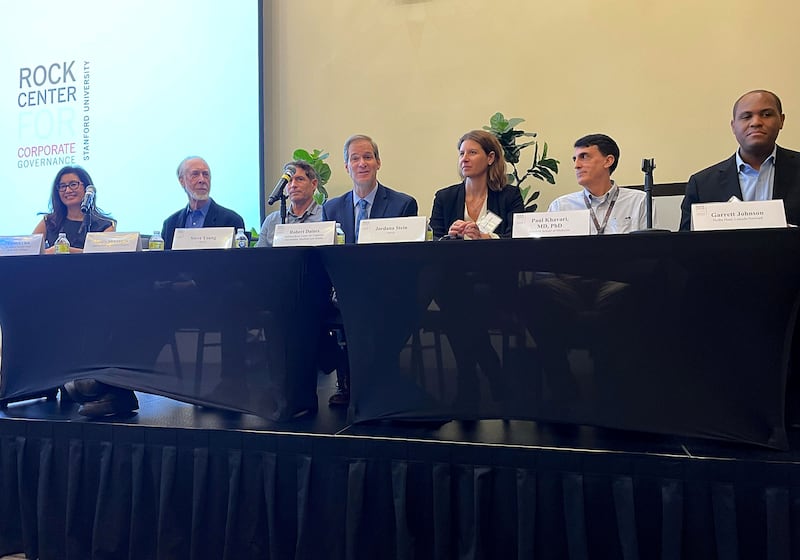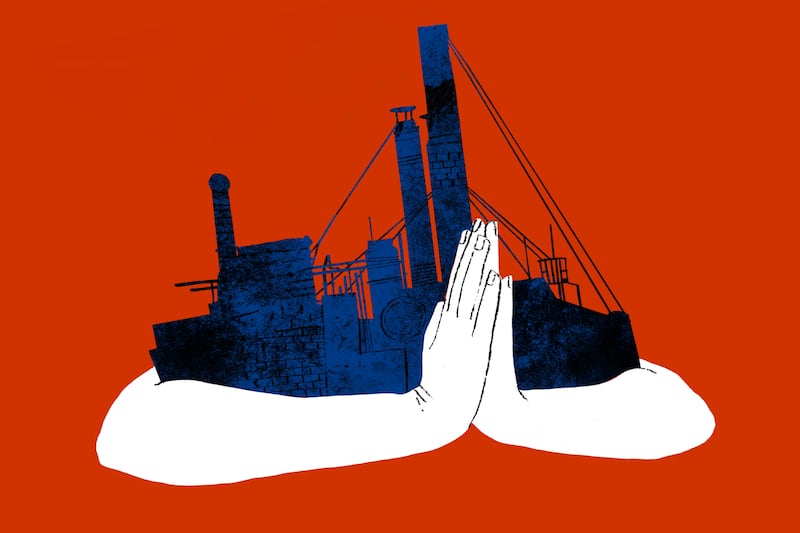When Intel CEO Pat Gelsinger met with lawmakers on Capitol Hill earlier this year to discuss a bill on increasing semiconductor production, he would finish the meetings by asking: “May I pray for you?”
For Gelsinger, this wasn’t a trite expression. He meant it. Prayer is something he’s done with many people — more than 10,000 over the course of his long career in Silicon Valley.
It’s his way of asking, “Can I join you in your greatest concerns,” he explained at an event at Stanford University on Thursday, where academics and business leaders spoke about the intersection of faith and work, and the sensitivities and opportunities that exist there.
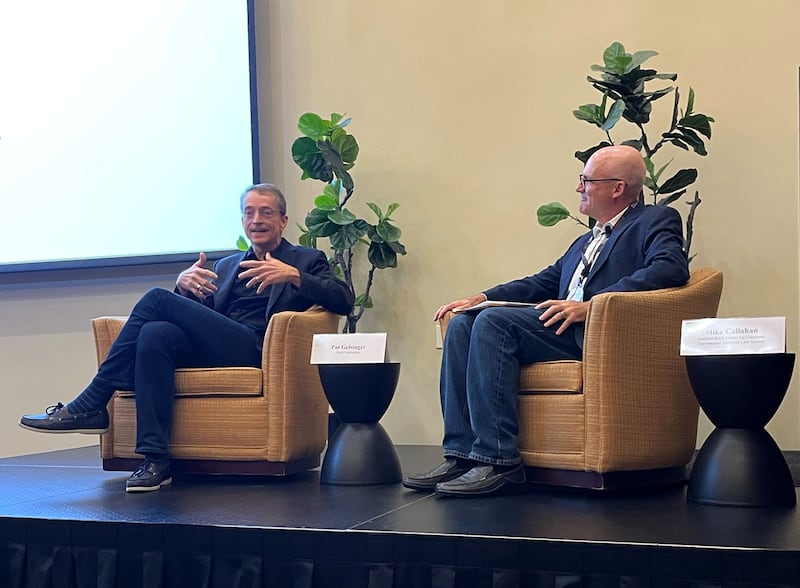
Sometimes, Gelsinger said, people said no thanks to his prayer offer, and other times they would ask if he would pray for them right then and there. The question often came after colleagues shared challenges they were facing, or something going on with their families.
In Silicon Valley, employees are told to bring their “whole selves,” to work, Gelsinger and other panelists said. But what does that mean for individuals for whom their faith is integral to their lives, both in and out of work? A recent poll conducted by HarrisX for the Deseret News showed people think it’s important that people can share their faith at work, but a majority of religious people said they were afraid to do so.
That is even more true in California, pointed out Stanford law professor Robert Daines. He asked the panelists why they thought that was.
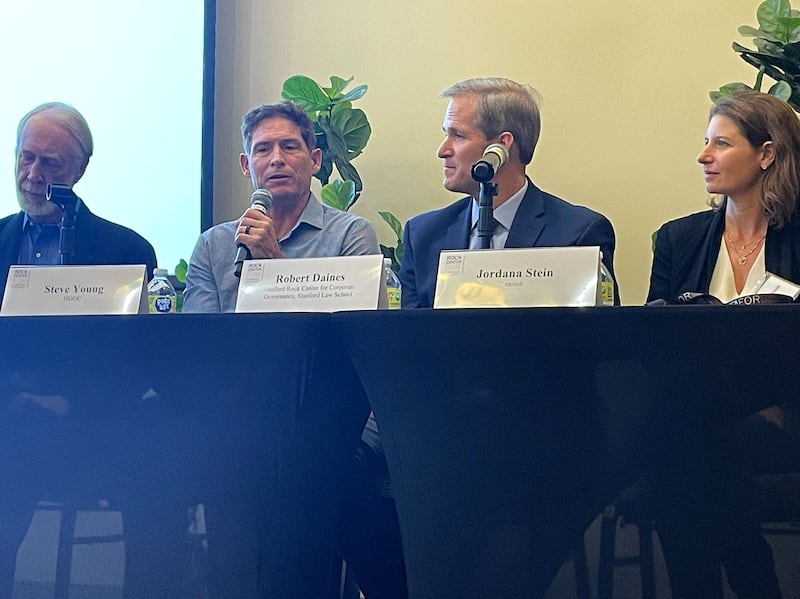
Steve Young, a former Brigham Young University and NFL quarterback who now runs a private equity firm, said he recognized that some people saw religion as divisive, and that religious people need to do their best to bring their faith to work in a way that is “healthy and healing” to others.
He was taught by his NFL football coach Bill Walsh that building a team requires breaking down the barriers that separate us, and learning to love each other, including by having “tender conversations” involving faith.
Stanford School of Medicine professor Paul Khavari, who is a member of the Baha’i faith, agreed with Young that some people see religion as divisive, which is why he said he feels more comfortable bringing up his faith when he is speaking to people one-on-one, versus making “big pronouncements.”
The tension around faith at work is especially fraught in Silicon Valley, where work often brings meaning and purpose to people’s lives, rather than religious faith, according to Carolyn Chen, a professor of ethnic studies at the University of California at Berkeley, and co-director of the Berkeley Center for the Study of Religion. Chen is also the author of “Work Pray Code: When Work Becomes Religion in Silicon Valley,” and is a Christian.
“Workplaces are the new faith communities … in places like Silicon Valley,” said Chen. But “we need a diversity of institutions to thrive outside of work.”
She added that she is concerned that businesses are supplanting the need for “vibrant faith communities.”
By design, businesses want their employees to feel fed spiritually and socially at work, but the religious workers she interviewed for her book were less likely to want to spend long days in the office, because they wanted to devote time to their faith communities. They found identity and meaning outside of work, Chen said.
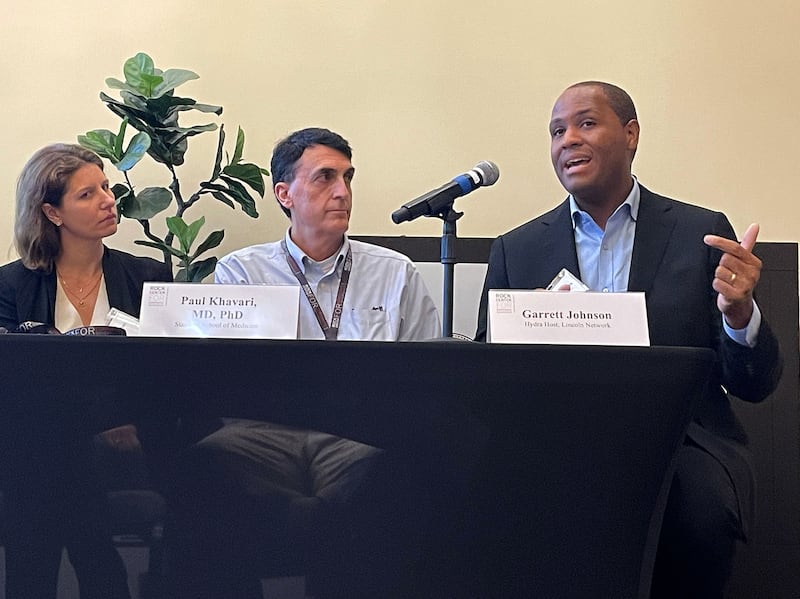
Garrett Johnson, co-founder and chairman of the Lincoln Network, a market-oriented think tank, said he is concerned that tech companies often miss the “I” in diversity, equity and inclusion training. Silicon Valley can be “stifling and challenging” for people with heterodox views on faith and politics, he said.
When speaking to DEI professionals about how to integrate faith into the training they do, he said he realized “they don’t know what they don’t know.” But, he said, there was openness to bringing faith and viewpoint diversity into the conversation about inclusion at work.
David Miller, a professor at Princeton University and director of the Faith & Work Initiative, said it’s important for large businesses to be faith friendly but not faith-based. They should find ways to include employees from all faith backgrounds — from “atheism to Zoroastrianism,” he said.
In his work with businesses across the world, many leaders want to understand how to help integrate faith and values into a workplace, Miller said, including by talking about ethics and purpose.
“For some it’s healing — a balm in Gilead,” he said. The central question for many religious employees is “How do we worship God and serve our neighbor through our work?”
